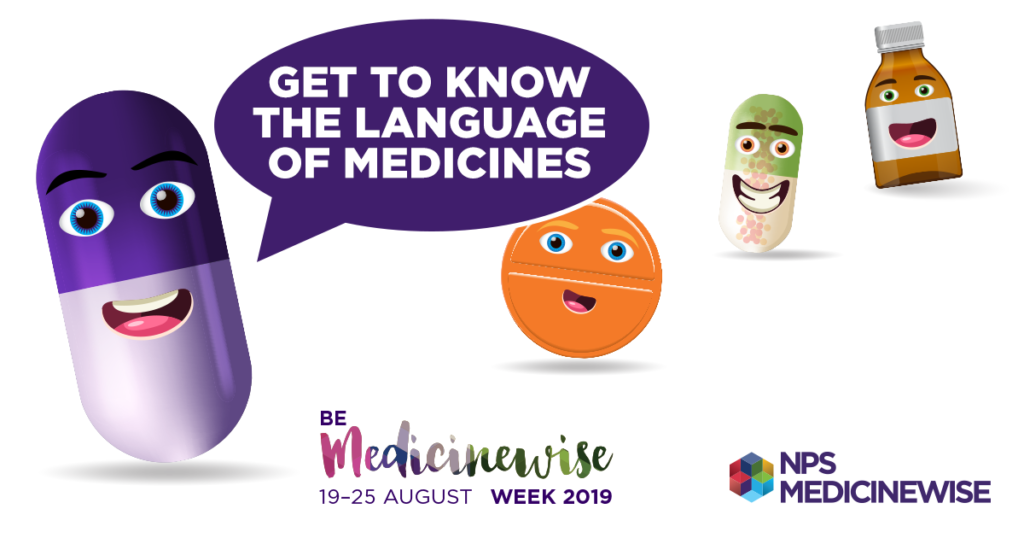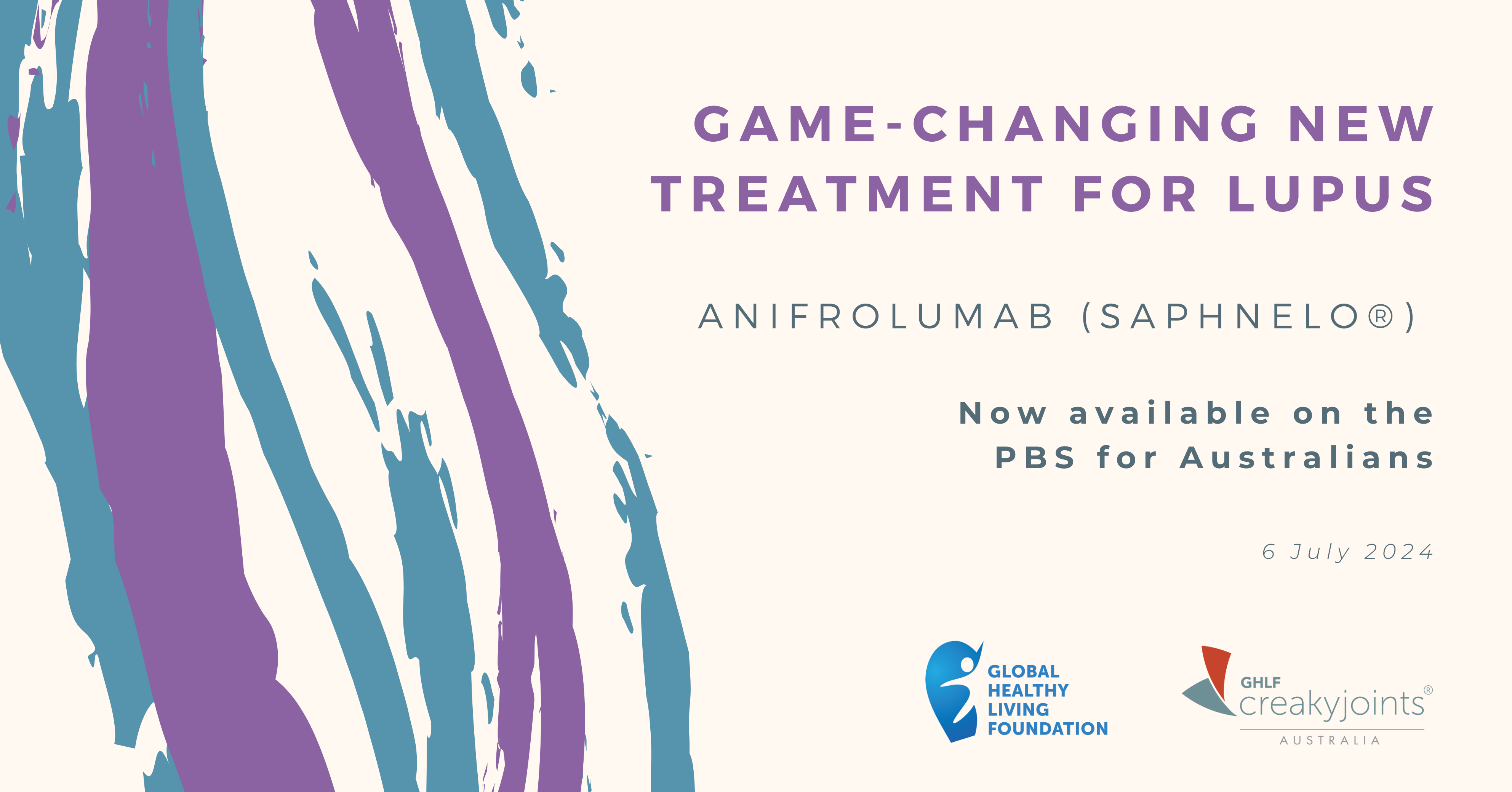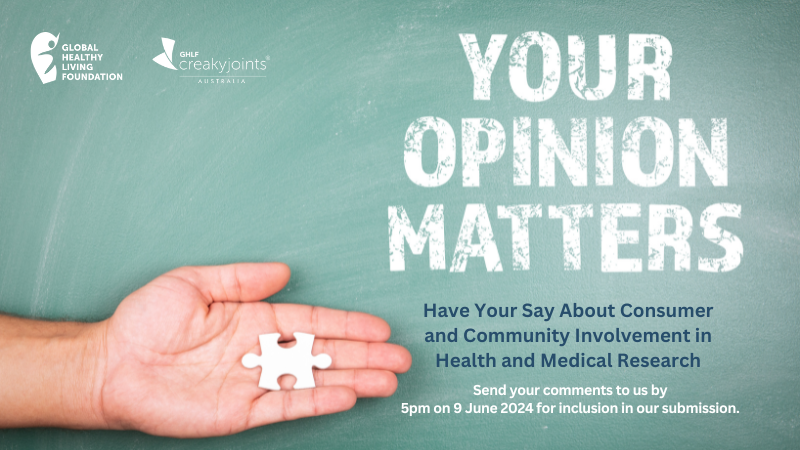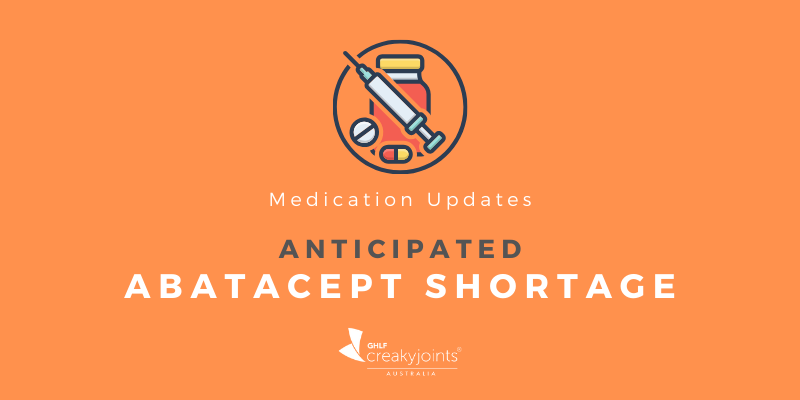

CreakyJoints Australia is backing the efforts led by NPS MedicineWise to encourage more people to “get to know the language of medicines” during Be Medicinewise Week (19 to 25 August 2019). This means knowing the active ingredient of your medications, the right information to record and the right questions to ask.
NPS MedicineWise is an independent, non-profit Australian organisation. Its mission is to enable people to make and act on the best decisions about medicines, medical tests, health technologies and other options for better health and economic outcomes.
Why Should You Record Your Medications?
The YouGov Galaxy survey compiled for the 2019 Be Medicinewise Week showed that of the people who regularly take two or more medicines regularly, only 31 per cent actually keep a list of all the prescription, over-the-counter and complementary medicines they use. 40 per cent don’t keep a list of these at all, while the rest are somewhere in between.
When you have chronic health issues, it is common to need multiple daily medications and supplements. It can get even more complicated if you vary the dose or only have some medications on certain days. If you see different health professionals, they may add to or remove medications from your regime, so it is important you share this information with your entire healthcare team.
If you need urgent medical attention, your medication list could help doctors or paramedics learn vital information about your health that may affect how they treat you.
Know the Active Ingredient
The active ingredient is the primary chemical in any medication. Note that even “natural” products contain chemicals. Chemicals are substances that cannot be broken down without changing into something else. Calcium, sodium and zinc are all chemicals. Even people are made up of chemicals.
Many common medications are available under different brand names and may also be combined with other key ingredients. For example, the active ingredient paracetamol can be sold as Panadol®, Panadol Osteo®, Panamax®, Dymadon®, Panadeine Forte® (which includes codeine) and many more brands.
The maximum adult dose of paracetamol is 4000mg per day (or eight 500mg tablets). Yet, with so many products containing paracetamol readily available, it is all too possible to accidentally overdose.
Then, there are medications that are contraindicated for your condition. That means they might cause you adverse effects. Some medicines should not be taken together for the same reason. For example, complementary treatments to boost the immune system, such as echinacea, can work against medications for inflammatory arthritis, which are designed to suppress parts of the immune system. Other medications should not be taken with blood-thinners, such as warfarin or aspirin.
The Australian Government announced in the 2018-19 Federal Budget that all medications will be prescribed by their active ingredient, rather than their brand name, in the near future. This initiative is designed to reduce confusion and avoid problems with overdosing and contraindication, such as those mentioned above. Therefore, it is especially important to get to know the active ingredient in all your medications.
The NPS MedicineWise Medicine Finder tool can help you find the active ingredient in most prescription medications available in Australia. It also includes information on how to take your medication, what it is used for and much more.
Tips For Keeping Track of Your Medications
Keep your own medication list
While many GPs will keep a list of all the medications they have prescribed to you, their list may not include medications prescribed by other health professionals. You might also have changed your dose or stopped taking some of the listed medications altogether. For this reason, it is important that you check your GPs list carefully or maintain a list of your own.
Your list should include:
- All medicines that have been prescribed for you by a health professional
- All vitamins and herbal supplements you take
- Other complementary medicines, such as colloidal silver or medicinal cannabis
- The active ingredient of your medication (and preferred brand if relevant)
- Notes on what the medication is for, the dose you take, and when and how you take it
- You might also like to include your emergency contact information
Ensure all your health professionals have a copy of your current medication list — including your dentist and any allied health professionals. You can download a PDF of the NPS MedicineWise medicine list template from their website and print out a copy as needed. You can also download the MedicineWise app from your preferred app store.
Use the My Health Record website
Your My Health Record is an online platform where your health information can be stored and accessed securely from any device. It is operated by the Australian Government. Most Australians will now have their own My Health Record (unless you have chosen to opt-out).
Your My Health Record could include information on:
- Your current medical conditions
- The medications you take
- Your allergies
- Your test or scan results
- Any additional comments you would like to include
You have full control over who can access or change your record and over the type of information recorded there.
Ask your local pharmacy for help
Most pharmacies offer a range of services to help you keep track of your medications. These include:
- Keeping your prescriptions at the pharmacy and notifying you when you need to see your doctor for repeats.
- Sending SMS notifications when your next prescription is due to be processed
- Filling multi-dose Webster Packs with your weekly medications into sealed blister compartments for each dose according to your doctor’s orders
- Arranging a Home Medicines Review with you at the request of your GP
Use a Medical ID product
Some private companies issue Medical ID products, such as necklaces or bracelets. Some products simply note that you have a medical condition. However, newer products have a security code on them that allows the user to access important medical information about you via an online portal.
If you choose to use such a product, make sure you are comfortable with the supplier’s data security and that your information is always up to date.
However you choose to record your list, make sure that others can access it in an emergency. Keep a hard copy in your wallet if possible.
Important Questions to Ask Your Health Professionals
If there is anything you don’t know or understand about your medications — especially new ones — it is important to ask the relevant health professionals. These might include:
- How will this medication benefit me?
- What is the active ingredient?
- What dose should I take?
- How often should I take it?
- Should I take it with food?
- Is it available through the Pharmaceutical Benefits Scheme (PBS)?
- Are there access restrictions for this medication?
- What are the possible side effects?
- Is it safe to take with my other medications, vitamins or supplements?
Managing your health conditions is often hard enough so managing your own medications can be very confronting for some people. You might feel it is easier to let someone else deal with that, and that is a common reaction. However, many people find that this is one area of your health management that you can control and that is very empowering.
There might be some things that you can’t do now, but this is something you CAN do. Using the tools above can help you stay in charge of what’s happening to you.
Keep Reading
- Opinion – Why we all need a My Health Record
- Government Support for People With Chronic Illness
- 5 Ways Your GP Can Help You Manage Your Chronic Illness
- Rheumatoid Arthritis Medications
Coming Soon
CreakyJoints Australia will soon be launching an extensive Arthritis Treatments section on our website. Initially, it will cover the common treatments for inflammatory arthritis, however, we will be adding much more content over time. Register for a free CreakyJoints Australia membership (at the top of this page) to receive our enewsletter and to be notified when the new website section is launched.




